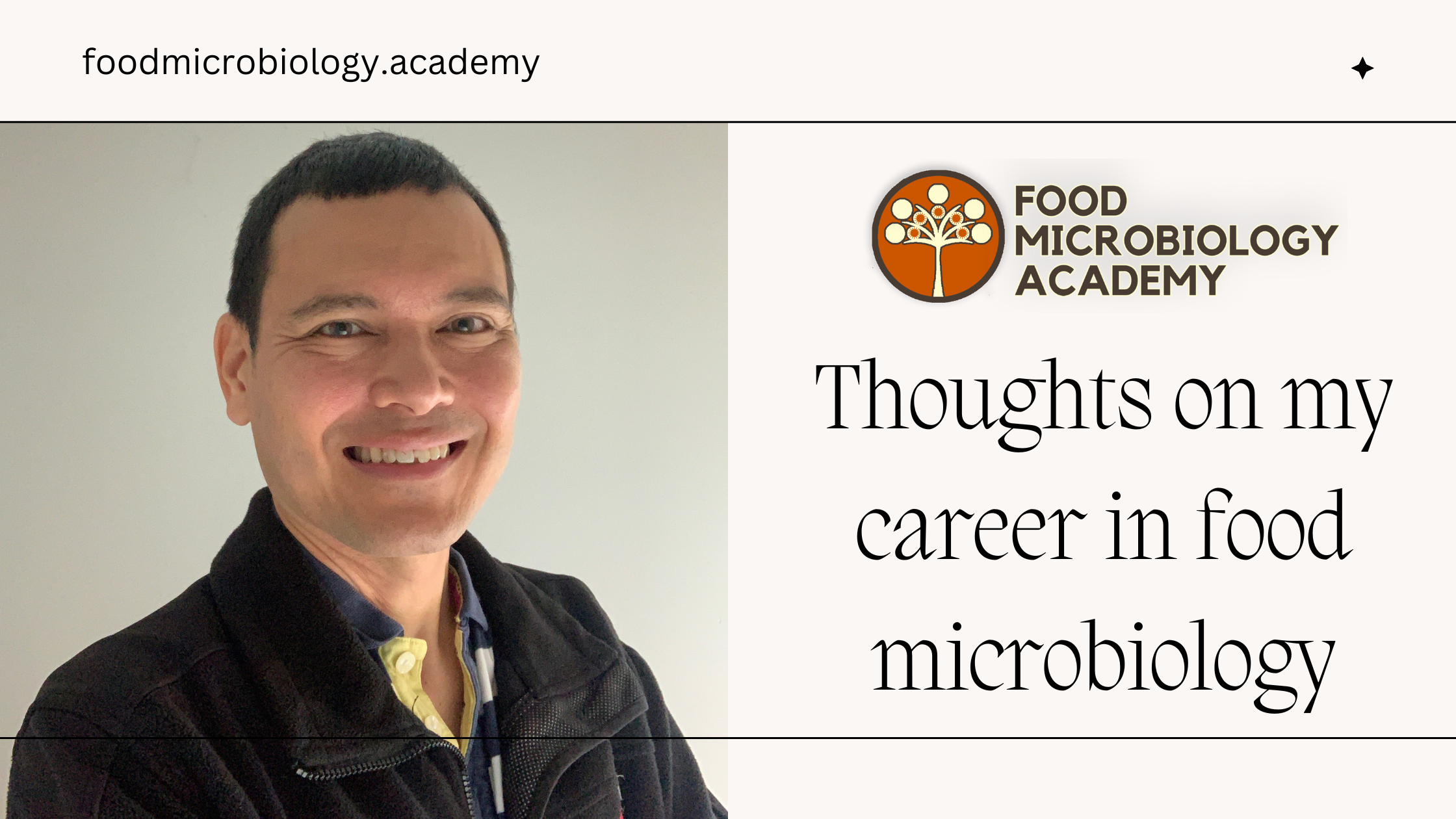By Philip Button – philip.button@foodmicrobiology.academy
Lately, over the past few months, I’ve been working quite closely with some undergraduate students, from Monash University. The joy of working with such talent, the next generation of scientists, is no doubt a privilege. Being able to share my thoughts and insights, what I’ve done right, my journeys and most importantly what I’ve done wrong, with clear guidance to not leave it 20 or 30 years until you do this, or think that, and so on. This whole process though has again made me describe my interests and how I started along the professional path I love. I may be walking two paths, one wider than the other, but my microbiology path has been there since 1995.
I have long had an interest in biology. At first, I thought I would be a botanist, or maybe a horticulturist, and I completed a short vocational course in horticulture in 1994. Upon focusing on my undergraduate Science degree, I had a vision to be zoologist, a z oology researcher. I could see myself in the Australian desert, spending weeks at a time studying native animals in Central Australia. Without much thought, this image or my professional just developed in my mind. Then, in the second semester of 1995 at Deakin University, a took a second-year genetics subject. This was my first, indirect, exposure to microbiology, through practical classes of the genetics of bacteria. For some reason, somehow, I had an affinity with microbiology and especially bacteriology. To this day, I don’t know what it is, or why, but I was just drawn to microbiology. I had absolute clarity, and when I moved back to Townsville and took up studies at James Cook University, I knew I would major in microbiology and took as many microbiology subjects as I could. Microbiology was taught through the Graduate School of Biomedical and Tropical Veterinary Sciences at the time, so I was taught by veterinarians, and learnt about veterinary diseases and pathology classes were using large domesticated animals. I undertook many microbiology subjects, and I think the only one I didn’t have a go at was marine microbiology. It was a great place to study microbiology. Come my final undergraduate semester, the environmental microbiology subject was transitioning to food microbiology, with the arrival of a new member of academic staff. I jumped in to food microbiology and while there was environmental content, on nutrient cycles and the like, the content was very heavily food focused. Not only foodborne pathogens, to keep in line with the clinical teaching and research that was undertaken at the University, but also in food fermentations too. I recall a sauerkraut practical, where we needed to monitor key parameters as the fermentation progressed. Despite getting in to food microbiology, but favourite subject was Mechanisms of Infectious Diseases that semester, a follow-on subject from Clinical Microbiology in first semester. This was my playground I felt, an area I loved and where I felt at home. I wasn’t outstanding in any of these subjects, but was doing ok. When final results were out, at the end of semester, for my final undergraduate semester, I was absolutely astonished when I only scored 50% for the infectious diseases subject – I was so close to failing the subject I loved so much. I still don’t know how that happened, maybe there was less bacteriology in that subject, perhaps, but whatever the case, it happened. At the same time, food microbiology was my best subject, certainly not great at 71%, but it was my best. Therefore, I made the choice to follow food microbiology.
For various reasons, I’ve had to narrow my food microbiology path at times over the years, but it is always there, and I can’t bring myself to step away and leave food microbiology. No matter whether it is food quality and preservation, fermented foods and gut health or food safety, I do have a strong feeling with all of them, and have worked/researched in all these at different points in time over my career in food microbiology.
Now, in the mid-2020s, I feel a career in food microbiology is just as relevant as to when I was developing my interest in it, perhaps more so now. Some of the global challenges of our time can certainly be linked to elements of food microbiology, or their solutions can be based in food microbiology. Antibiotic resistance, climate change and food security can all be linked to food microbiology in some way, then we have the great health and economic burden of foodborne disease too. Food microbiology continues to influence and impact our lives in such profound ways, and will no doubt continue to do so. So why do I love food microbiology? Is it the food element? Is it because it is a central science that is critical to society? Maybe it is just the pretty colours of microbiological media that I “grew up” with in the laboratory in the pre-molecular era. I really don’t know how much love for microbiology and especially food microbiology started and what is keeping my passion. Whatever the case, it is clear that the pull I have for food microbiology is too strong for me to abandon my love of and for bacteria!



